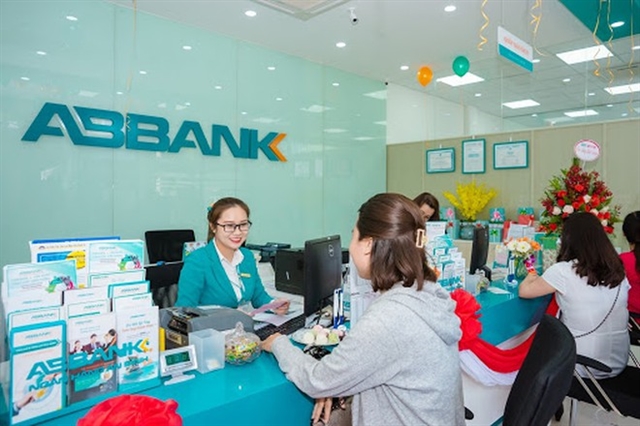Among banks that have already published Q3 2022 financial statements, only a few recorded declines in the bad debt ratio compared to the beginning of the year.

Though banks gained profits of trillions of Vietnamese dong in Q3 2022, credit quality has remained a concern of the banking industry, especially when Circular No. 14/2021/TT-NHNN on loan rescheduling for COVID-19 affected borrowers expired at the end of June this year.
Among banks that have already published Q3 2022 financial statements, only a few recorded declines in the bad debt ratio compared to the beginning of the year, online newspaper dantri.com.vn reported.
HDBank’s bad debt ratio dropped from 1.65 per cent at the beginning of 2022 to 1.54 per cent, while that of SeABank also fell from 1.65 per cent to 1.59 per cent, and Techcombank, from 0.66 per cent to 0.65 per cent. The ratio of BaoVietBank, MSB and Eximbank also declined from 4.9 per cent to 3.2 per cent; 1.74 per cent to 1.08 per cent; and 1.96 per cent to 1.9 per cent, respectively.
Though the bad debt ratio on total outstanding loans of the banks all declined, their irrecoverable debts increased at some banks. The increase of irrecoverable debts at SeABank, HDBank, Techcombank, MSB and Eximbank was 11.2, 35, 46, 3 and 21 per cent, respectively.
Other banks including ABBank, TPBank, BacABank, Saigonbank, PGBank, LienVietPostBank, VietCapitalBank, ACB and MB recorded an increase in the bad debt ratio. In which, only PGBank saw a slight decline in irrecoverable debts. The increase in irrecoverable debts was 124 per cent at TPBank, 131 per cent at ACB, 85 per cent at MB, 99.7 per cent at VietBank, 43 per cent at Saigonbank, 35.6 per cent at LienVietPostBank and 39 per cent at ABBank.
Earlier, banking experts repeatedly warned about the adverse impacts of the pandemic on the production and business activities and the solvency of borrowers, which would put pressure on the bad debt developments at banks.
According to banking expert Nguyen Tri Hieu, Circular No. 14/2021/TT-NHNN, which allowed banks to reschedule the loan payment time and maintain the same debt group for COVID-19 affected borrowers, has caused the bad debts of the banking industry to be calculated inaccurately, as under the regulation a number of debts that should have been bad debts have been restructured and maintained to be qualified debts.
The expiry of Circular No. 14/2021/TT-NHNN from the end of June this year had more realistically reflected the bad debt situation at banks, experts said.
As bad debts have increased, many banks, such as Techcombank, VPBank, BacABank, HDBank, ABBank and Eximbank, also raised their provisions for risky loans correspondingly in Q3 2022 compared to the same period of last year.
The increase in the provisions caused profits of some banks to see a slowdown. At Saigonbank, for example, the risk provisioning costs of banks in Q3 2022 nearly doubled to VND20.8 billion, which was one of the reasons for the bank’s low profit growth rate of 4 per cent in the period.
ABBank’s deputy general director Do Lam Dien also attributed the bank’s reduction of nearly 80 per cent in profits in Q3 2022 to its high increase in provisions for risky loans. In a document sent to the State Securities Commission, Dien said the bank’s provisions in Q3 2022 increased by 3.6 times compared to the same period of last year to VND310 billion. In Q3 2022, ABBank also bought back VND400 billion of special bonds from Vietnam Asset Management Company (VAMC).
According to Dang Tran Phuc, chairman of financial company AzFin Viet Nam, the increase of the provisions does not help lower the bad debts but only improves the resistance for banks.
However, Phuc said, banks with low provisioning rates might have to raise their provisions in the future while banks with high provisioning rates would be able to increase profits from the reversal of the provisions. — VNS
- Tags
- bank credit quality





